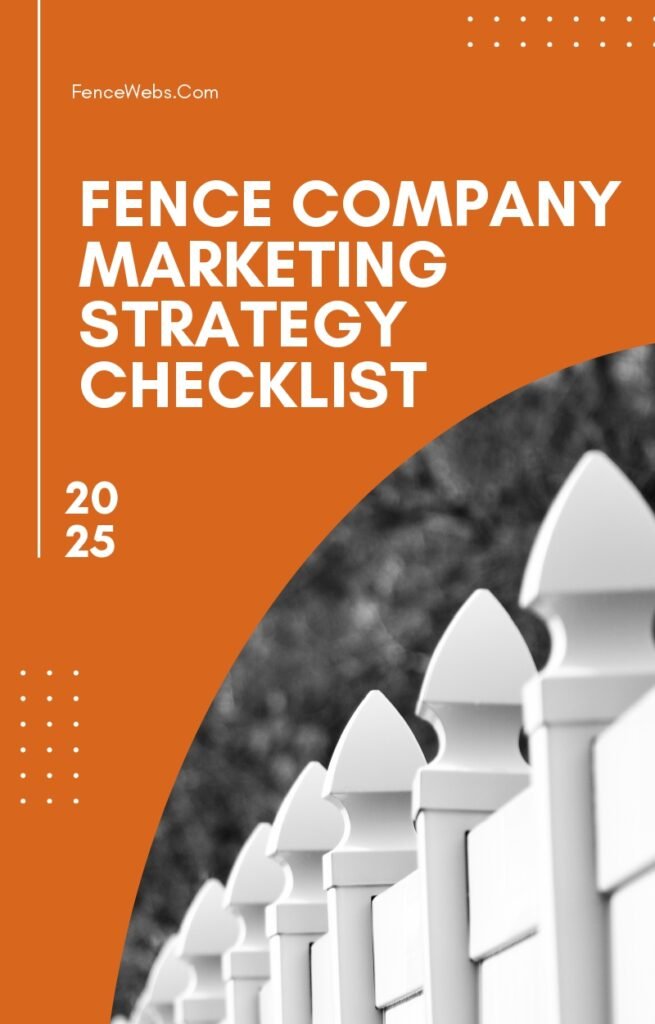Running a fence company in one city can keep you busy. But what happens when you’re ready to grow? If you’re thinking about moving into new cities, you’re not alone. Many fence contractors reach a point where local jobs aren’t enough. Growth means new markets, more customers, and a stronger brand. But it also comes with new problems to solve.
Let’s talk through what matters, what works, and how to do it without burning out or wasting money.
Know Why You’re Expanding
Before you move into a new area, ask yourself: why now?
Is your current city slowing down? Are you getting leads from nearby places? Or do you want to grow your team and income?
There’s no right answer. But if the reason isn’t clear, it’s easy to chase the wrong thing. Growing just to grow can leave you stretched thin.
Start With Nearby Cities
The easiest way to expand is to move into nearby cities. If your team can drive there in under an hour, you save on fuel, time, and hiring. You might already have word of mouth working in your favor.
Here’s how to test it:
- Ask past customers if they know anyone in the new area
- Check if you’re getting web traffic or calls from nearby ZIP codes
- Run small ads in that city and track who responds
Check the Local Market
Don’t assume all cities are the same. Some towns may have strict rules about permits or fence types. Others might already be packed with cheap installers.
Here’s what to look for:
- Competition: How many other fence companies are already working there?
- Demand: Are there lots of homes being built? Do people spend money on home upgrades?
- Pricing: What are other companies charging?
- Rules: Check if a license or permit is needed for work there.
A city with fewer jobs but less competition might be better than a big city full of low cost installers.
Set Up a City Page on Your Website

If you’re going to show up in searches for a new city, your website needs to help.
Build a page for each city you want to work in. These pages should be clear, local, and helpful.
Here’s what to include:
- The city name in the page title
- A short message about how you serve that area
- Info about fence types people there usually want
- Photos of past work (even if it’s nearby)
- Your contact info
Example page title: “Fence Installation in Springdale, AR | Wood & Vinyl Fencing”
You don’t need 1,000 words on each page. A few short sections with the right keywords and info is enough to start.
Set Up or Optimize Your Google Business Profile
To show up in maps, you’ll need a verified Google Business Profile (GBP) in the new city. This is one of the biggest trust signals for local customers.
If you have an office or warehouse in that city, use that address. If not, you’ll need a smart plan. Google wants real business locations, not P.O. boxes.

Some tips:
- Rent a small office or partner with a supplier in the area
- Use staff addresses only with permission
- Don’t fake it; you risk suspension
Once it’s live, update it with:
- Photos
- Service areas
- Business hours
- Real customer reviews
Focus on Local SEO
Once your city page and GBP are ready, it’s time to build your local search power. This takes time but pays off long term.
Here’s what helps:
- Get listed in local directories (Yelp, Angi, Houzz, etc.)
- Ask for reviews from customers in each city
- Add the new city name to some blog posts
- Use local terms people search for: “Springdale wood fence installer”
Search engines pick up on patterns. The more signals pointing to you in a city, the better.
Run Location Based Ads
If you want quick results, paid ads can help you get seen fast.
Use Google Ads and Facebook Ads to target only the new city. Keep your budget small at first while testing.

Tips:
- Use the city name in your ad text
- Show a local phone number if you can
- Only show ads during business hours
Track which ads bring in real leads. Turn off anything that doesn’t convert.
Use a Tracking Number
When you expand, you need to know which calls come from which cities. Use a call tracking service. They give you a different number for each city page or ad. That way, you’ll know what’s working and what’s not.
Build Local Partnerships
In new cities, you don’t have a reputation yet. One way to build trust fast is to team up with other trusted local businesses.
These could be:
- Homebuilders
- Landscapers
- Real estate agents
- Property managers
Offer to refer each other jobs. Or just meet for coffee and trade tips. Relationships go a long way in this business.
Hire Carefully
If you need a crew in the new city, take your time. Rushing to hire can backfire.
Start by sending your best team to handle the first few jobs. That sets the quality bar high. Once demand builds, you can hire locals and train them.
Use job boards like Indeed or local Facebook groups to find help.
Watch Your Costs
Expanding sounds exciting, but costs can sneak up on you. New ads, tools, fuel, gear, and staff all cost money.
Keep a simple sheet like this to track the numbers:
| Item | Monthly Cost | Notes |
|---|---|---|
| Google Ads | $300 | Springdale campaign |
| Office Rental | $500 | Shared space |
| Call Tracking | $50 | 2 local numbers |
| New Tools | $700 | 2 nail guns + blades |
| Facebook Ads | $200 | Testing for 4 weeks |
Don’t spend more than your best guess of monthly profit in that city. Start small.
Be Patient
Most fence companies don’t grow in one big leap. It’s more like laying one board at a time. What matters is doing good work and being smart with your time and money.
Give each new city a fair shot. Three to six months is a good window to measure how things are going.
If things don’t click, step back and adjust.
Final Thoughts

Growing into new cities is more than just driving farther. It’s about setting things up the right way, online and offline, so people can find you and trust you.
FenceWebs has helped fence companies do this for years. Whether it’s local SEO, web design, or ads that actually work, we keep it simple.
If you’re ready to grow, take the first step. Pick one nearby city. Set a clear goal. And build from there.








